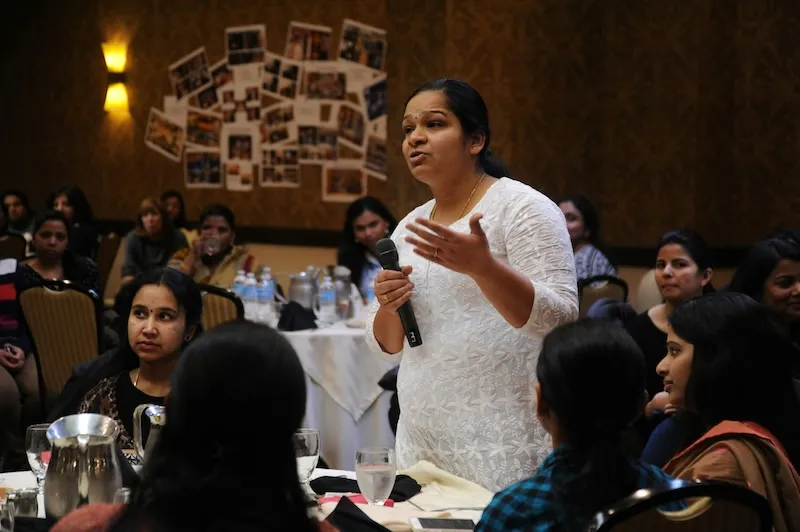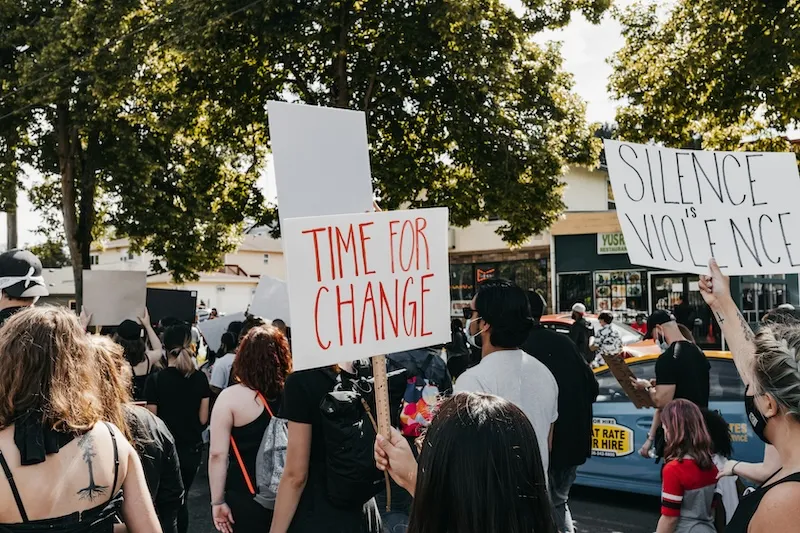The Power of Understanding

In our fast-paced world, where communication often feels rushed and superficial, the art of effective listening stands out more than ever as a life-changing skill. To listen goes beyond merely hearing words, it is about truly connecting with what others are feeling and needing. By listening well, we build stronger, more meaningful relationships. Nowadays, it seems that many people are too preoccupied with their smartphones to really listen, which is why I prefer to call them “not-so-smartphones.”
8 Reasons Why
You should listen
- Understanding– Effective listening allows us to comprehend others perspectives, emotions, and needs more accurately.
- Building Relationships– It builds trust and rapport, as people feel valued when they know they’re being heard.
- Conflict Resolution– Active listening can help de-escalate conflicts by ensuring all parties feel acknowledged and understood.
- Learning and Growth– By listening attentively, we gain new information, insights, and perspectives, promoting personal and professional development.
- Effective Communication– It enhances the quality of communication by reducing misunderstandings and improving clarity.
- Leadership– Leaders who listen well are better able to inspire, motivate, and guide their teams, leading to higher productivity and morale.
- Respect and Empathy– Listening demonstrates respect for others viewpoints and experiences, developing empathy and a sense of community.
- Problem-Solving– It enables us to gather information and collaborate effectively to find solutions to challenges.
Understanding

Effective listening is a skill that goes beyond just hearing words. It involves a deep engagement with others perspectives, emotions, and needs. When we listen actively and attentively, we grasp not only the words spoken but also the underlying meanings and intentions behind them. This ability to understand others viewpoints is crucial in personal relationships, where it fosters empathy and strengthens bonds by showing genuine care for what others have to say. Thus showing you care.
In professional settings, listening is equally vital. It enables effective collaboration by appreciating different viewpoints and integrating ideas into strategies. In leadership roles, effective listening allows for informed decision-making that considers the concerns and aspirations of team members, creating a more inclusive and supportive work environment.
By actively listening, we open ourselves to new insights and perspectives that challenge our assumptions and broaden our worldview. This continuous learning process enhances our communication skills and enriches our ability to navigate complex situations with empathy and insight.
In essence, effective listening is more than just hearing words, it is an active process that involves empathy, understanding, and a true interest in connecting with others. By developing this skill, we not only enhance our relationships and teamwork but also contribute to a more caring and inclusive environment where understanding and respect are at the heart of meaningful interactions.
Building Relationships

Building relationships relies heavily on effective listening. It is not just about exchanging words but about creating meaningful connections. When we listen attentively, we show that we value the thoughts, feelings, and experiences of others. This simple act of genuine interest helps to build rapport and establish trust. By actively listening people are more likely to open up and share. Because they feel heard and appreciated, which strengthens the bond between us.
Effective listening goes beyond hearing words, it involves understanding the emotions and motivations behind them. It also includes paying attention to what is not said, such as reactions and body language.
In professional settings, listening is essential for building strong collaboration and teamwork. By attentively listening to our colleagues, we gain a better understanding of their ideas and concerns, which helps us work together more harmoniously.
In personal relationships, such as friendships or romantic partnerships, listening creates a supportive environment where both parties feel validated and understood. It helps us address conflicts constructively by uncovering underlying issues and finding solutions that work for everyone.
Ultimately, building relationships through effective listening is about fostering connection and empathy. It’s about making others feel valued and cared for by listening with an open heart and mind. By developing this skill, we enhance our personal and professional relationships and contribute to a more compassionate and harmonious world.
Conflict Resolution

Learning and growth are nurtured through the art of listening. When we listen actively, we open ourselves to a world of knowledge and understanding. Each conversation becomes a chance to gain new insights, perspectives, and experiences that enrich our view of the world.
By listening attentively, we not only gather information but also pick up on the subtleties of emotions and motivations behind the words. This deepens our empathy, helping us connect more meaningfully with others and appreciate their viewpoints. In professional settings, listening helps us understand complex ideas, learn from mentors and colleagues, and incorporate diverse perspectives into our decisions.
Effective listening also encourages continuous improvement. By engaging with feedback and new ideas, we identify areas where we can grow and refine our skills. This process is about more than just gaining knowledge, it’s about evolving as individuals, developing our abilities, and adapting to new situations.
In the end, listening acts as a catalyst for both personal and professional growth. It opens us up to new ideas, broadens our perspectives, and encourages a lifelong learning mindset. Embracing the power of listening guides us on a path of development, enriched by the wisdom and experiences of others. It also helps us to notice the subtleties and unspoken aspects that are sometimes hidden beneath the surface, like groomers.
Learning and Growth

Learning and growth are nurtured through the art of listening. When we listen actively, we immerse ourselves in a world of knowledge and understanding. Each conversation becomes an opportunity to gain insights, perspectives, and experiences that enrich our view of the world. For instance, learning about the challenging experiences of children in Cambodia can profoundly deepen our understanding and empathy, revealing the broader realities faced by others.
Through attentive listening, we absorb not just information but also the depths of emotions and motivations behind the words. This deepens our empathy, allowing us to connect more profoundly with others and appreciate their viewpoints. In professional settings, listening helps us understand complex concepts, learn from mentors and colleagues, and bring together different perspectives in our decision-making.
Moreover, effective listening supports ongoing improvement. By genuinely engaging with feedback and new ideas, we discover opportunities for growth and enhance our skills. This journey isn’t just about gaining knowledge, it’s about evolving as individuals, developing our talents, and adapting to new situations.
Ultimately, listening acts as a key driver of personal and professional growth. It opens up new ideas, expands our perspectives, and fosters a lifelong learning mindset. By embracing the power of listening, we start a journey of growth, enriched by the insights and experiences of those around us.
Effective Communication

Effective communication is closely tied to the art of listening. It’s not just about sharing information but also about allowing others to speak, creating a space where both parties feel engaged and respected. Attentive listening ensures that messages are received and understood accurately, which helps prevent misunderstandings and miscommunication.
Listening with empathy shows that we truly care about others perspectives and feelings, which helps build trust and openness. This creates a solid foundation for meaningful conversations and successful teamwork.
When we listen well, we can adapt our message to better suit the needs and preferences of our audience. This way, we can choose our words and approach more carefully, making our communication clearer and more meaningful.
Listening is important for resolving conflicts. It helps us understand core concerns, address differences, and find common ground, leading to a more cooperative and supportive approach to problem-solving. Additionally, listening fosters active participation and engagement. It encourages people to share their ideas, ask questions, and contribute to discussions, which nurtures openness and teamwork.
Ultimately, effective communication is about more than just speaking, it is about listening deeply, understanding clearly, and responding with care. By honing our listening skills, we improve our ability to convey information effectively and forge stronger connections, which fosters greater success in both personal and professional relationships. In our new digital world, where meaningful interactions can sometimes be overshadowed by technology, mastering the art of effective communication remains more important than ever.
Leadership

At its heart, leadership is about empathy and guidance. It is not just about hearing what people say but truly understanding their thoughts, feelings, and aspirations.
When leaders listen with empathy, they build trust and create strong connections with their team members. This helps everyone feel valued and respected, making open communication and teamwork more natural.
Effective leaders listen to the different perspectives within their team. This helps them understand the challenges team members face and provide the right kind of support.
Listening also helps leaders empower their team. By acknowledging and considering others ideas and concerns, leaders build confidence and motivate people to do their best.
Leaders who listen well can handle conflicts and challenges more effectively. They address underlying issues and guide their team toward solutions, promoting a culture of respect and resilience.
In essence, leadership combined with listening is about more than just giving directions. It’s about fostering a shared sense of purpose, encouraging growth and innovation, and achieving success together through understanding and collaboration.
Respect and Empathy

Respect and empathy are key qualities that build meaningful relationships and interactions, both personally and professionally. They are the foundation of effective communication and are crucial for creating a positive and supportive environment.
When respect and empathy come together, they create a powerful dynamic. Respect means recognising the inherent worth and dignity of every person, no matter their perspective or background. This is shown through actions that honour others opinions, feelings, and choices.
Empathy, on the other hand, involves understanding and sharing the feelings of others. It means listening deeply, imagining ourselves in someone else’s position, and responding with care and sensitivity. Empathy helps us connect emotionally with others, building trust and stronger relationships.
In personal relationships, respect and empathy help create an atmosphere of mutual understanding and support. They allow for open communication, constructive conflict resolution, and shared celebrations of each other’s successes.
In the workplace, respect and empathy are just as important. They help foster a positive culture where diversity is embraced, teamwork is encouraged, and productivity flourishes. Leaders who show respect and empathy earn trust and loyalty, making it a place where everyone feels valued and motivated.
In the end, respect and empathy are not just ideals but practical skills that can be developed and practiced in our daily interactions. They lay the groundwork for meaningful connections, effective teamwork, and a more harmonious society where everyone feels heard, understood, and valued.
Problem-Solving

Problem-solving is a dynamic process that benefits greatly from empathy and collaboration. Approaching challenges with a mindset of attentive listening helps us gain a deeper understanding and come up with creative solutions.
Listening allows us to appreciate the details and complexities of a problem. It’s not just about hearing the words but about understanding the emotions, concerns, and perspectives that contribute to the issue. This deeper insight helps us address the root causes rather than just the symptoms.
Listening nurtures empathy by showing us how others perceive the problem. By appreciating various viewpoints and experiences, we deepen our understanding and open up more possibilities for solutions. This inclusive approach strengthens our teamwork and sparks creativity in problem-solving.
Effective problem-solving through listening also promotes collaboration. When team members feel heard and valued, they are more likely to share ideas and work together towards common goals. This collaborative approach fosters a culture of innovation where new ideas and solutions can emerge.
Listening is also essential for building consensus. By fostering open dialogue and mutual understanding, we can work through different opinions and find common ground. This approach helps ensure that solutions are effective and have the support of everyone involved.
In essence, problem-solving through effective listening goes beyond just finding answers. It’s about fostering a culture of understanding, empathy, and collaboration. By making listening a central part of our approach, we help ourselves and our teams tackle challenges with creativity, resilience, and shared insight.
Takeaway

In our new world, where communication often feels rushed and superficial, it is crucial to prioritise meaningful connections and support for one another. Amidst the hustle and bustle, there’s one simple yet powerful action we can take to foster deeper relationships and understanding, listening.
By truly listening to those around us, we encourage genuine conversations and deepen our understanding. This helps us navigate challenges together and create kinder, more supportive connections.







